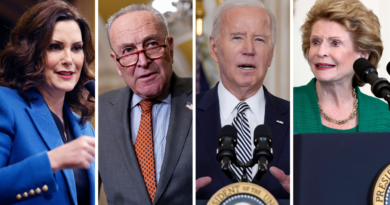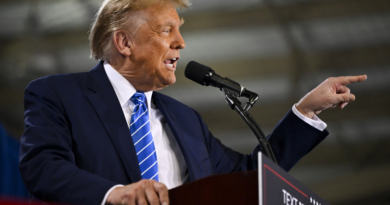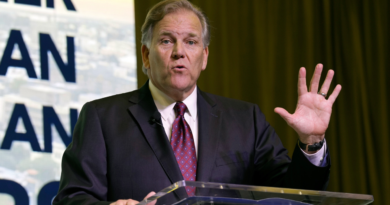No Wisconsin wake-up call: Republicans go full steam ahead on abortion restrictions
DeSantis, Donald Trump’s chief rival in the Republican presidential primary, has said he will sign the bill. Once he does — and if North Carolina Republicans act, too — abortion would be largely illegal throughout the South. It will all but guarantee that the topic will become a defining point in the 2024 campaign.
“It’s obviously a bad issue for Republicans,” said Sarah Longwell, a moderate Republican strategist who has conducted extensive focus groups with Republican voters.
Republicans know by now that the politics of abortion in the post-Roe v. Wade era are unfavorable to them. They have since seen the stunning defeat of an anti-abortion measure in heavily-Republican Kansas last year, and continuing through a less-than-red-wave midterm.
On the issue of abortion, “we are at a disadvantage, 100 percent,” said Mark Graul, a Republican strategist in Wisconsin who oversaw George W. Bush’s 2004 campaign in the state.
But even as Donald Trump himself has said the party went too far with abortion restrictions, there has been little appetite in the broader GOP for pulling back. Public opinion overall favors abortion rights, with even many Republicans and Republican-leaning independents saying the procedure should be legal in most cases. But among the activist base — including many Republicans who spent decades laboring to overturn Roe — the issue remains a litmus test that features prominently in GOP primaries. The 15-week bans that seemed extraordinarily aggressive just one year ago now are considered half-measures.
“The majority of [state] representatives are in safe seats, so they’re more worried about primaries where social issues play to the base,” said former North Carolina Gov. Pat McCrory, who ran unsuccessfully for a U.S. Senate seat last year. “They’re not really worried about those people running statewide.”
“It’s a very selfish game,” he added.
If Wisconsin is any indication, it may also prove to be enormously destructive to the GOP. In that swing state on Tuesday, liberals flipped the ideological balance of the Supreme Court with Janet Protasiewicz’s lopsided victory over conservative former state Supreme Court Justice Dan Kelly.
Abortion wasn’t the whole story. Money and candidate quality may have mattered more, Graul said. But it was a big part of it — in a state that has a controversial, 19th-century abortion ban on the books, and where Protasiewicz campaigned heavily on abortion rights.
Some Republicans looking ahead to 2024 are already sounding the alarm.
Earlier this week, Jon Schweppe, policy director at the American Principles Project, a conservative think tank, warned on Twitter that “Republicans need to figure out the abortion issue ASAP. We are getting killed by indie voters who think we support full bans with no exceptions.”
He urged them to “suck it up” and unite behind Sen. Lindsey Graham’s proposed 15-week abortion ban, hoping to blunt Democrats’ criticisms of more restrictive measures.
“I want to ban abortion,” Schweppe said in an interview on Thursday. “That’s a long-term goal. I think almost every pro-lifer will tell you that’s the case. We believe it’s murder. But you know, you’re not going to get there overnight, and you’re not going to get there by doing something that’s against the will of the American people.”
He added: “If the pro-life movement doesn’t get their shit together, ultimately, Republicans are going to say, ‘Well, we have to get elected, and the pro-life movement is a liability.”
Longwell’s focus groups would appear to bear that out. Abortion, she said, is often the first example voters raise when explaining why they view a candidate as “extreme.” And as Donald Trump’s loss in 2020 and the midterms laid bare, that designation is deadly in a general election.
“The gap between what base voters demand on abortion, on election denialism, on fidelity to Trump — the gap between that and what swing voters are up for has gotten very wide,” Longwell said. “You always had to do a general election pivot, but it’s turning from a pivot into a massive leap.”
For Democrats, it’s becoming an ongoing political gift — a cudgel they will use to hit Republicans in the run-up to 2024.
Citing what he called Wisconsin’s experience with “the nightmare that Republicans want to inflict on the entire country,” Ben Wikler, the state Democratic Party chair, said, “the political impact of it represents a tectonic shift.”



